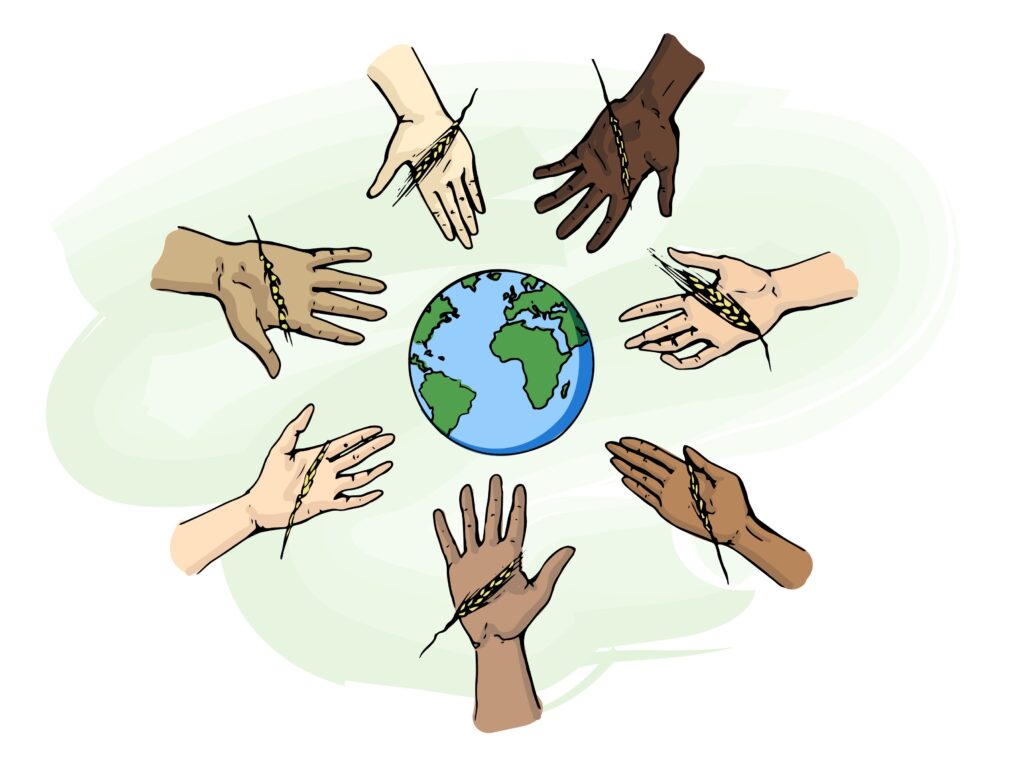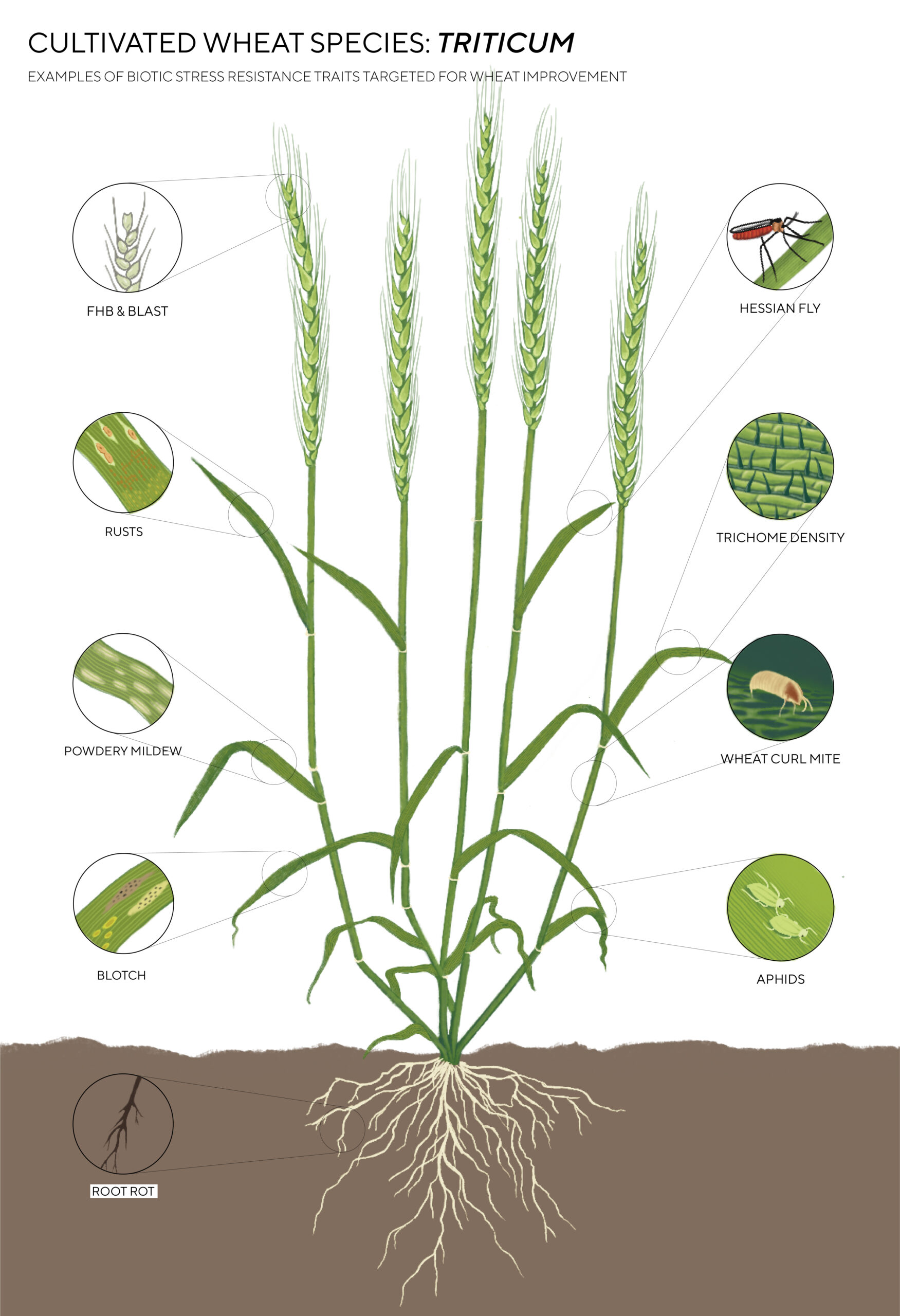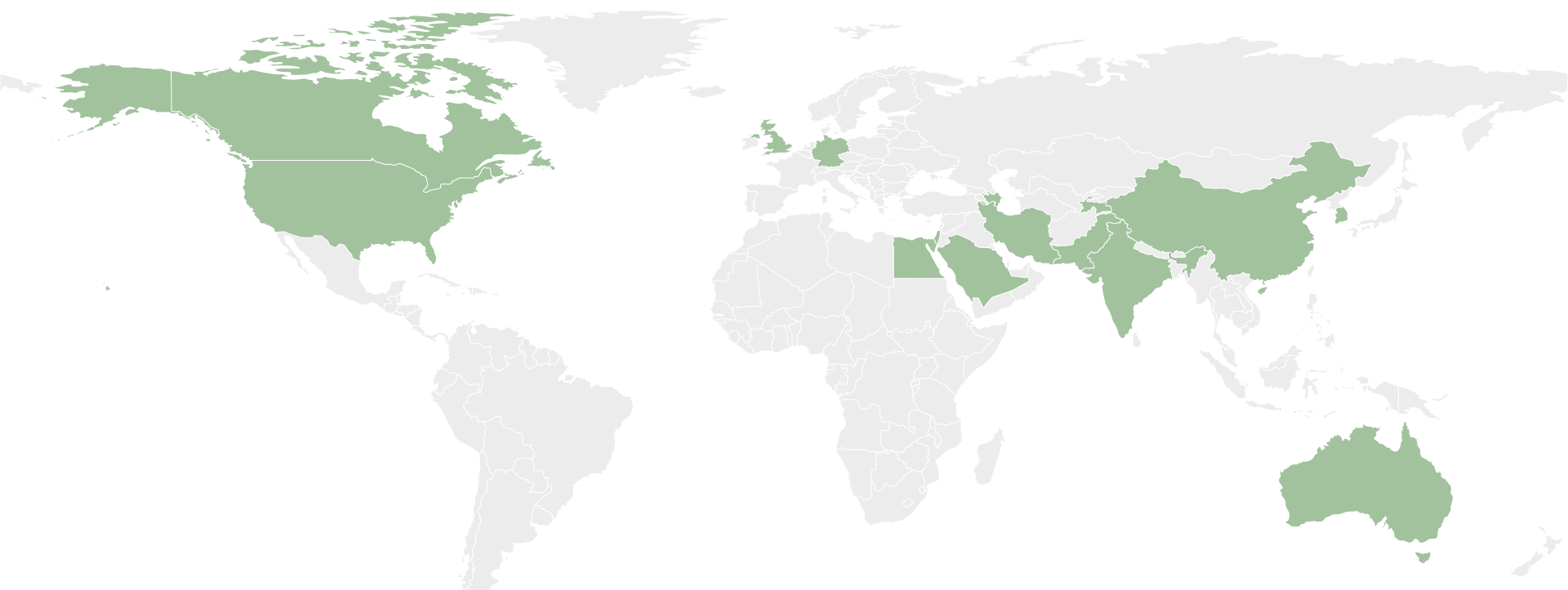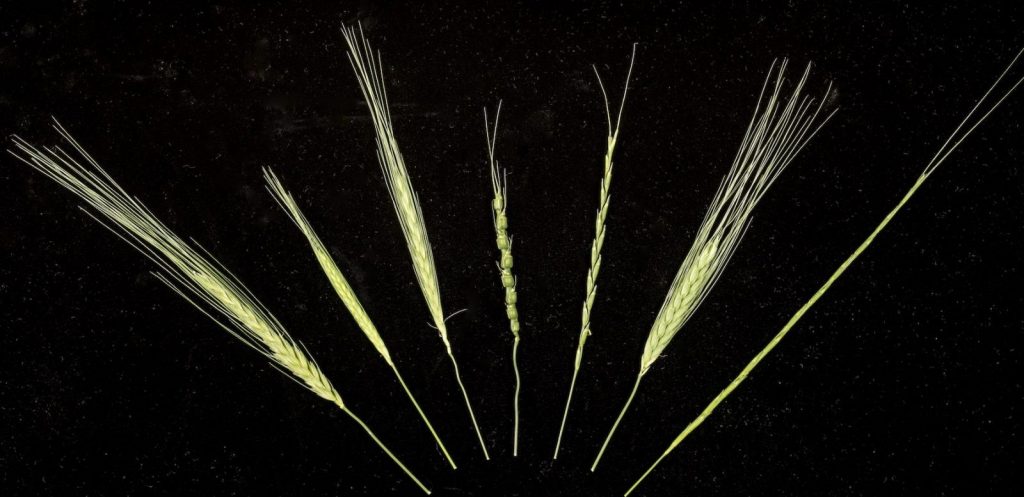
Unlocking the Diversity of Wild Wheat
Open Wild Wheat Consortium Mission
We look to the original wild relatives of wheat to unlock traits that have previously been left behind.
The domestication of wheat turned a grass into one of the most important crops and global food sources. Millennia of wheat breeding improved agronomical traits such as grain yield, seed size, and nutritional content.
However, this systematic crop improvement proved to be a bottleneck for diversity, limiting traits such as resistance to biotic or abiotic stress and threatening sustainable wheat production to ensure global food security.
To address this challenge, the discovery of wild wheat diversity underpinning stress tolerance can contribute to accelerated wheat improvement.

Wild Wheat Focus Species
Cross-Continental Collaboration
The Open Wild Wheat Consortium is represented by 15 countries across America, Europe, Asia, Australia, and Africa.

Unlocking the diversity of wild wheat

Who we are
We are an international consortium of researchers with strategic interests in Triticeae breeding, genomics, genetics, pathology, and germplasm collection, preservation, and distribution.
The Open Wild Wheat Consortium (OWWC) is represented by 15 countries across America, Europe, Asia, and Australia.
The OWWC has operated in two phases. Phase I was successfully completed in 2021, after five years of research and a publication in Nature Biotechnology. The current phase II began in January of 2022.
What we do
We look to the original wild relatives of wheat to unlock traits that have previously been left behind.
The domestication of wheat turned a grass into one of the most important crops and global food sources. Millennia of wheat breeding improved agronomical traits such as grain yield, seed size, and nutritional content.
However, this systematic crop improvement proved to be a bottleneck for diversity, limiting traits such as resistance to biotic or abiotic stress and threatening sustainable wheat production to ensure global food security.
To address this challenge, the discovery of wild wheat diversity underpinning stress tolerance can contribute to accelerated wheat improvement.